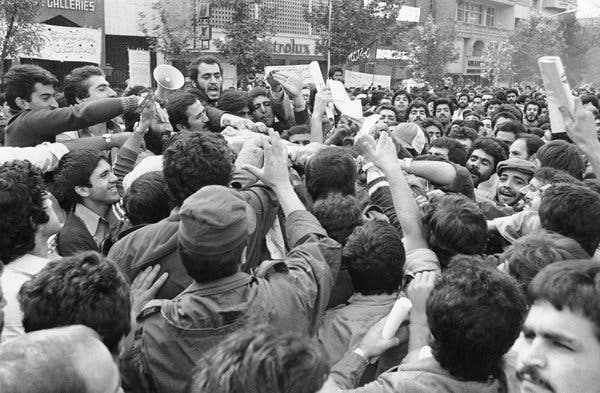The Da Vinci Code's Enduring Legacy: An Examination Of Its Popularity

Table of Contents
The Allure of Historical Mystery and Conspiracy
The Da Vinci Code masterfully blends historical fact and fiction, creating an irresistible narrative for readers. This compelling mixture is a significant contributor to The Da Vinci Code's enduring legacy.
Intriguing Historical Figures and Events:
The novel expertly weaves real historical figures like Leonardo da Vinci and Mary Magdalene into a fictional narrative, instantly piquing reader interest.
- The book subtly incorporates real historical events and organizations, adding a layer of believability to the otherwise fantastical plot.
- The legendary Holy Grail and the secretive Priory of Sion, both featured prominently, tap into a deep-seated human fascination with ancient mysteries and hidden knowledge.
- Extensive research is evident in the book, lending credibility and grounding the fantastical elements in a seemingly plausible historical context. This meticulous detail adds to the overall immersive experience for readers.
The Conspiracy Theory Element:
At its heart, The Da Vinci Code is a conspiracy thriller. The appeal of secret societies, hidden truths, and powerful institutions pulling the strings resonates deeply with readers.
- The book's central conspiracy, challenging established religious dogma, fueled significant debate and discussion, further cementing its place in popular culture.
- The narrative taps into the human fascination with the unknown, the thrill of uncovering hidden knowledge, and the distrust of authority figures – elements common to many popular conspiracy theories.
- This element of suspense and intrigue keeps readers guessing until the very end, contributing to the book's overall impact and its continued popularity.
Masterful Storytelling and Suspense
Dan Brown's storytelling prowess is another key element in understanding The Da Vinci Code's enduring legacy. His writing style, coupled with the accessibility of the narrative, ensures broad appeal.
Dan Brown's Writing Style:
Brown's writing is characterized by its fast-paced narrative, short, impactful chapters, and cleverly placed cliffhangers.
- The use of cliffhangers at the end of chapters expertly manipulates the reader's expectations, creating a sense of urgency and encouraging them to continue reading.
- The short chapters make the novel easily digestible, and the fast-paced narrative maintains reader engagement.
- Although the characters aren't deeply complex, they are relatable and serve their purpose within the overarching narrative, contributing to the overall enjoyment.
The Global Reach and Accessibility of the Story:
The story's relatively straightforward plot, combined with its universal themes of love, betrayal, and the search for truth, ensures its accessibility across cultures and languages.
- The novel's simple yet effective narrative structure allows it to translate easily into different languages and resonate with readers from diverse backgrounds.
- The global reach of The Da Vinci Code – translated into numerous languages and adapted into a successful film – has significantly contributed to its lasting impact.
- The book's accessibility means that even readers with limited background knowledge of art history or religious symbolism can easily follow and enjoy the story.
The Impact of the Media Adaptation and Cultural Phenomenon
The success of the 2006 film adaptation further propelled The Da Vinci Code into the global consciousness, broadening its audience and securing its place in popular culture.
The Movie's Success and its Ripple Effect:
The film adaptation, starring Tom Hanks, was a box office triumph, garnering significant media attention and further solidifying the book's already considerable popularity.
- The film's success introduced The Da Vinci Code to a new generation of readers and viewers, contributing to its sustained cultural relevance.
- Despite mixed critical reception, the film's popularity undeniably contributed to the book's enduring legacy.
- The cinematic experience expanded the book’s reach beyond the literary sphere, embedding itself in popular culture in a way few novels achieve.
Ongoing Discussions and Debates:
The novel's controversial nature, particularly its handling of historical facts and religious interpretations, has sparked countless discussions and debates, ensuring its continued relevance.
- The book's depiction of historical events and figures has been challenged by historians and theologians alike, fueling ongoing controversies and academic discussions.
- These debates, while sometimes critical, have ultimately contributed to the book’s long-term cultural impact and visibility.
- The controversy surrounding the book keeps it a topic of conversation even years after its release, ensuring that The Da Vinci Code remains part of ongoing cultural conversations.
Conclusion:
The Da Vinci Code's enduring legacy is a result of a potent combination of factors: a compelling historical mystery laced with conspiracy, masterful storytelling techniques, and the significant impact of its film adaptation. The book's accessibility and the ongoing debates it provokes continue to ensure its relevance in the modern world. Have you experienced the thrill of uncovering the secrets within The Da Vinci Code? Dive in today and discover this enduring legacy for yourself! You might even find yourself inspired to explore Dan Brown's other works or delve deeper into the historical mysteries that inspired the novel.

Featured Posts
-
 Nba Draft Lottery Raptors Top Seven Odds And Playoff Implications
May 13, 2025
Nba Draft Lottery Raptors Top Seven Odds And Playoff Implications
May 13, 2025 -
 Winterwatch A Guide To Birdwatching In Winter
May 13, 2025
Winterwatch A Guide To Birdwatching In Winter
May 13, 2025 -
 15 Year Old Stabbing Victim Laid To Rest
May 13, 2025
15 Year Old Stabbing Victim Laid To Rest
May 13, 2025 -
 Gaza Hostage Crisis A Lingering Nightmare For Families
May 13, 2025
Gaza Hostage Crisis A Lingering Nightmare For Families
May 13, 2025 -
 Dorean And Pliromenes Metadoseis Serie A Olokliromenos Odigos
May 13, 2025
Dorean And Pliromenes Metadoseis Serie A Olokliromenos Odigos
May 13, 2025
